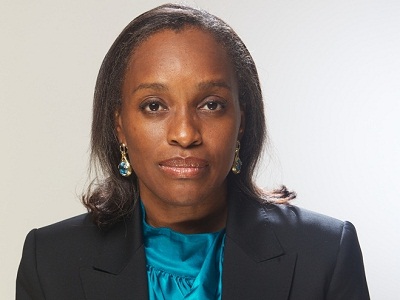Inside The Nigerian National Broadband Plan (2013 – 2018)


Earlier in the year, i did write on Why 2013 could be a defining year for Nigeria in terms of Information and Communications Technology Development. With the Communications Ministry leading the development through relevant ICT policies and plans, Nigeria might be ready to galvanise and articulate her priorities right to explore opportunities in today’s global competitiveness.
As a follow up to the recommendations of the Presidential Broadband Committee which has submitted the Nigerian National Broadband Plan for 2013-2018,a 19-man Broadband Council was inaugurated recently by the Minister of Communications Technology, Mrs Omobola Johnson who herself will is the Chair the Council.
The council is charged with the responsibility of implementing the National Broadband Plan for Nigeria within the period (2013-1018).Am optimistic like never before seeing some notable members of the Broadband implementation council among who are Dr Ernest Ndukwe former EVC of Nigeria Communications Commission, Dr Eugene Juwah present EVC of NCC and Mr Jim Ovia.
Executive Summary of the Nigerian Broadband Plan 2013-2017
The policy goal of the Federal Government of Nigeria recognizes the immense socio-economic importance of broadband services to national development and therefore seeks to ensure that the infrastructure necessary to provide ubiquitous broadband services is available and accessible to all citizens at affordable rates. The transformative benefits of having broadband available to all are clear and include improved learning, increased job creation, better community and civic engagement, improved trade and commerce, and a positive impact on GDP.
In looking at what has been achieved with Broadband in the ICT sector today, the modest success recorded has been with several initiatives that ride on the back of the immense success of the Digital Mobile services boom in Nigeria, including the subsequent landing of several high capacity submarine cable systems that slashed wholesale international bandwidth prices. However, ineffective distribution and transmission of the available bandwidth inland have continued to make accelerated expansion of broadband internet access at more affordable end-user prices, a major challenge and a barrier to faster realisation of the desired broadband boom in Nigeria.
Because of the diverse nature of the country in terms of class and geography, different technologies must be deployed, including terrestrial wireless networks, optic fibre transmission networks, fibre to the home/premises, DSL systems, satellite systems and fibre/broadband over power lines. This will ensure the provision of solutions tailored to the needs of individual groups or communities.
The Broadband Vision
The broadband vision for Nigeria is one of a society of connected communities with high speed internet and broadband access that facilitate faster socioeconomic advancement of the nation and its people.
Traditionally, the term broadband referred to high-speed communications networks that connected end-users at a data transfer speed greater than 256 Kbit/s. Global organisations have chosen to define it more in terms of an ecosystem. It has however been chosen to define broadband in a manner that reflects the user experience.
As such, broadband within the Nigerian context is defined as an internet experience where the user can access the most demanding content in real time at a minimum speed of 1.5 Mbit/s.
These definitions will be reviewed and revised upwards regularly to keep in line with future developments in technology.
The Benefits of Broadband
We live in a global village where ICT has a direct impact on a Nation’s ability to improve the economic wellbeing of her people and compete globally. Broadband is an essential infrastructure of the 21st Century. It enables access to business and job opportunities, improves healthcare, education and government services, and facilitates social interactions.
Broadband is to the 21st Century Information Age what Electricity was to the Industrial Age. It has a significant transformative effect on how people live and work. It empowers the individual user with previously unimaginable capabilities and global reach. The Internet is the world’s biggest library and largest repository of information and knowledge; while High Speed Access is critical to fully harnessing the benefits of the Internet.
The Current State of Broadband
The broadband supply chain comprises of international connectivity, a national backbone network, metropolitan access links, and the local access network (the last mile).
In Nigeria, there is now an appreciable number of submarine cable landings on the shores of the country providing over 9 Tbit/s of combined capacity. However there is concern about the fact that all the landings are in Lagos and that access to other parts of the country is choked due to the limitations of distribution infrastructure to the rest of the country. For National Security and resilience purposes, it is considered critical that these cable companies all have demonstrable recovery and restoration agreements with each other, and that the cable systems are extended to other coastal regions or states . This will help to further accelerate the expansion and distribution of the currently under-utilised bandwidth to the rest of the country.
The Federal Government shall therefore promote the rapid establishment of recovery agreements and the delivery of additional cable landing points to other coastal states such as Delta, Rivers, Bayelsa and Ondo as soon as possible.
In terms of a National Backbone fibre optic infrastructure most Long Distance Carriers have amongst themselves fibre presence in all the thirty six states and the FCT. Findings also indicate that while many routes in the country still do not have fibre coverage, there exists a proliferation of fibre along some routes. Moreover the cables on the routes that have multiple fibre installations are mostly not interconnected to offer the required redundancy to promote network resilience. While islands of fibre infrastructure may be good for some of the operators, it is definitely not good for the nation as it does not engender a truly national network.
The Government shall therefore promote a seamless interconnectivity regime and an Open Access Infrastructure sharing agreement among operators.
Wireless technology is the primary delivery medium for broadband in Nigeria. The licensing, rollout and upgrade of Mobile networks based on 2.5G (GPRS), EDGE, UMTS, HSPA, HSPA+, HSUPA, HSDPA and CDMA EV-DO technologies, as well as, the introduction of smartphones andother smart mobile devices with seamless capability to connect the internet have been responsible for the current growth in internet access and usage recorded in Nigeria.
This trend will receive further boost with the wider rollout of 3G across the country, making it possible for many subscribers to access broadband internet using their mobile devices.
The Challenges of Broadband Operators
Challenges common to operators in the telecoms sector have been identified as; the high costs of right of way resulting in the high cost of leasing transmission infrastructure; long delays in the processing of permits; multiple taxation at Federal, State, and Local Government levels and having to deal with multiple regulatory bodies; damage to existing fibre infrastructure as a result of cable theft, road works and other operations; and the lack of reliable, clean grid electricity supply.
Strategic Goals and Objectives for Broadband
The key objectives of the Nigerian National Broadband Plan are to promote pervasive broadband deployment; increase broadband adoption and usage; and ensure availability of broadband services at affordable prices. All these are aimed at maximising the political and socioeconomic benefits of broadband.
It is intended during the period of this plan to see more than a fivefold increase in internet and broadband penetration figures. It is also intended that all state capitals and urban cities have metro fibre infrastructure installed. On a national scale, it is the intention of government to facilitate full roll out by operating companies of 3G networks as a minimum on all base stations by 2015.
This will ensure that Nigerian citizens will enjoy World Class wireless broadband as a basic access medium for the society. Broadband is an essential right and basic utility for societal transformation and development, necessary for all segments of society.
Roles for Government and Stakeholders
Governments at various levels have a critical role to play in the drive to have pervasive broadband infrastructure across the nation. Government no doubt has interest in converting the nation into a digital haven that will be fully networked and ready to be integrated into the new world order of digitally enabled citizens in an environment of e-governance, e-health, e-commerce and e-agriculture among others.
The Federal Government’s primary role is focused on Policy formulation and direction as well as legal and regulatory functions. Government is therefore focused on providing overall policy, legal and regulatory platform for attracting the required investment for the sustainable development of the sector to support national development goals and plans.
Download the full Nigerian National Broadband Plan.


